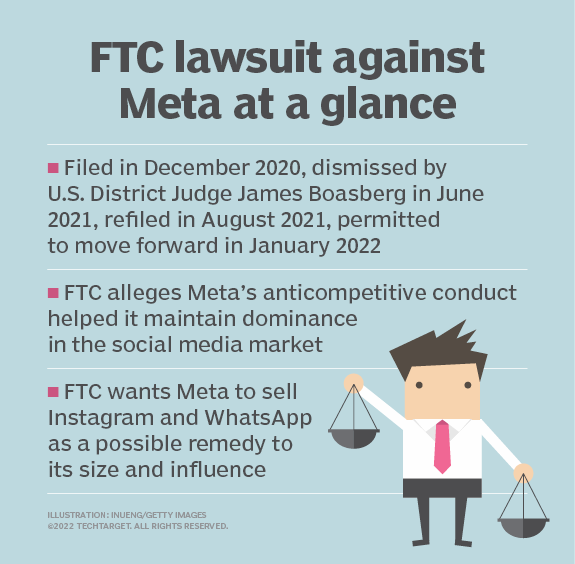US-Canada Relations: Trump's Pre-Election Remarks On Economic Dependence

Table of Contents
Trump's Criticism of the US-Canada Trade Deficit
Defining the Trade Deficit and its Complexities
The trade deficit, simply put, is when a country imports more goods and services than it exports. However, it's a complex issue.
- Services Trade Balance: While the US often has a goods deficit with Canada, the services trade balance frequently favors the US. This includes sectors like finance and tourism.
- Bilateral Trade: The focus on a bilateral deficit ignores the broader global context of trade. Both countries engage in extensive trade with other nations, affecting overall economic balances.
- NAFTA/USMCA: The North American Free Trade Agreement (NAFTA), replaced by the United States-Mexico-Canada Agreement (USMCA), significantly shaped US-Canada trade for decades. Trump's criticisms of NAFTA often centered on perceived imbalances, framing the agreement as unfavorable to the US.
Trump repeatedly framed the US-Canada trade deficit negatively, emphasizing what he considered unfair treatment. He frequently used social media and public speeches to voice his concerns. These pronouncements often lacked the nuance of economic analysis, focusing instead on the headline number of the deficit.
The Impact of Trump's Rhetoric on Canadian Businesses and Investors
Trump's rhetoric created considerable uncertainty for Canadian businesses and investors.
- Market Volatility: Negative pronouncements caused fluctuations in the value of the Canadian dollar and stock markets, impacting Canadian businesses reliant on US trade.
- Investor Uncertainty: The threat of protectionist measures discouraged cross-border investment, potentially slowing economic growth in both countries.
- Specific Sectors Affected: Sectors like agriculture (dairy) and forestry were particularly vulnerable to Trump's threats of tariffs and trade restrictions.
The consequences of Trump’s statements were a palpable decrease in business confidence and a chilling effect on cross-border investment. The uncertainty created a ripple effect throughout the economies of both nations.
Trump's Promises of Renegotiation and Protectionism
Analysis of Trump's Proposed Renegotiation of NAFTA (now USMCA)
Trump repeatedly called for a renegotiation of NAFTA, citing several key areas of concern:
- Chapter 19 Dispute Resolution: Trump criticized Chapter 19, which allowed for binational panels to resolve trade disputes, viewing it as a disadvantage to the US.
- Dairy Tariffs: The Canadian dairy industry faced considerable pressure, with Trump threatening increased tariffs and claiming unfair trade practices.
His proposed renegotiations aimed, from his perspective, to create a more "fair" trade relationship and reduce what he considered to be excessive economic dependence on Canada. The ultimate result was the USMCA, which included some significant changes to NAFTA.
The Implications of Protectionist Trade Policies for the US and Canada
Trump's protectionist tendencies raised concerns about:
- Trade Wars: The threat of escalating tariffs and trade restrictions could have sparked a damaging trade war, harming both economies.
- Reduced Economic Growth: Protectionist policies generally reduce economic efficiency and overall growth.
- Negative Impact on Supply Chains: Disrupting deeply integrated supply chains can lead to significant cost increases and production delays.
While protectionism might offer short-term benefits to certain sectors, the long-term implications for both US and Canadian economies were potentially severe. The disruption of established trade patterns carries inherent risks.
The Canadian Response to Trump's Statements
Canadian Government Reactions and Diplomatic Efforts
The Canadian government responded to Trump’s statements through various channels:
- Diplomatic Initiatives: Canada engaged in extensive diplomatic efforts to maintain positive trade relations and de-escalate tensions.
- Counter-Arguments: Canadian officials presented data and economic analyses to counter Trump's claims and highlight the mutual benefits of trade.
Canada actively worked to defend its interests while simultaneously emphasizing the importance of continued collaboration with the United States.
Public Opinion in Canada Concerning US-Canada Relations under Trump
Public opinion in Canada reflected considerable concern about Trump’s rhetoric:
- Polls and Surveys: Numerous polls showed a decline in positive sentiment towards the US among Canadians during Trump's presidency.
- Shifting Sentiment: Canadians' perceptions of the US-Canada relationship were significantly affected by Trump’s aggressive trade policies and nationalistic statements.
The overall public sentiment in Canada shifted from one of partnership and close collaboration to one of uncertainty and apprehension concerning the future of the relationship.
Conclusion: Long-Term Impacts of Trump's Pre-Election Rhetoric on US-Canada Relations
Trump's pre-election remarks significantly impacted US-Canada relations. His criticisms of the trade deficit, promises of renegotiation, and protectionist stance created uncertainty and strained the bilateral relationship. The Canadian government responded with diplomatic efforts and counter-arguments, but the lingering effects of this rhetoric are still visible. The renegotiated USMCA is a direct result of these tensions, reflecting a shift in the dynamics of the trade relationship. The long-term impact includes a lingering skepticism regarding the stability of the US-Canada economic partnership, making future collaboration and investment more challenging.
To further understand the complexities of US-Canada relations and the impact of political rhetoric on economic dependence, delve into resources on trade policy and international relations. Share your thoughts and insights in the comments below. Let's continue the discussion on strengthening US-Canada relations and fostering a more stable and predictable economic partnership.

Featured Posts
-
 Cnil Recommendations For Mobile App Privacy A Practical Guide
Apr 30, 2025
Cnil Recommendations For Mobile App Privacy A Practical Guide
Apr 30, 2025 -
 Live Stock Market Updates Dow Futures Earnings Reports And Key Indicators
Apr 30, 2025
Live Stock Market Updates Dow Futures Earnings Reports And Key Indicators
Apr 30, 2025 -
 Zustrich Trampa Ta Zelenskogo Na Pokhoronakh Papi Frantsiska Ostanni Novini
Apr 30, 2025
Zustrich Trampa Ta Zelenskogo Na Pokhoronakh Papi Frantsiska Ostanni Novini
Apr 30, 2025 -
 Channing Tatums New Relationship Is Inka Williams The One
Apr 30, 2025
Channing Tatums New Relationship Is Inka Williams The One
Apr 30, 2025 -
 Analyse Du Communique Amf Seb Sa Reference Cp 2025 E1021792
Apr 30, 2025
Analyse Du Communique Amf Seb Sa Reference Cp 2025 E1021792
Apr 30, 2025
Latest Posts
-
 Meta Faces Ftc A Deep Dive Into The Instagram And Whats App Lawsuit
Apr 30, 2025
Meta Faces Ftc A Deep Dive Into The Instagram And Whats App Lawsuit
Apr 30, 2025 -
 Ftcs Case Against Meta Latest Updates On Instagram And Whats App
Apr 30, 2025
Ftcs Case Against Meta Latest Updates On Instagram And Whats App
Apr 30, 2025 -
 Ftc V Meta Instagram Whats App And The Ongoing Legal Battle
Apr 30, 2025
Ftc V Meta Instagram Whats App And The Ongoing Legal Battle
Apr 30, 2025 -
 After School Camp Devastated Car Crash Claims Four Lives Children Included
Apr 30, 2025
After School Camp Devastated Car Crash Claims Four Lives Children Included
Apr 30, 2025 -
 A New Dawn For Canada Mark Carneys Liberals Defeat Trumps Agenda
Apr 30, 2025
A New Dawn For Canada Mark Carneys Liberals Defeat Trumps Agenda
Apr 30, 2025
